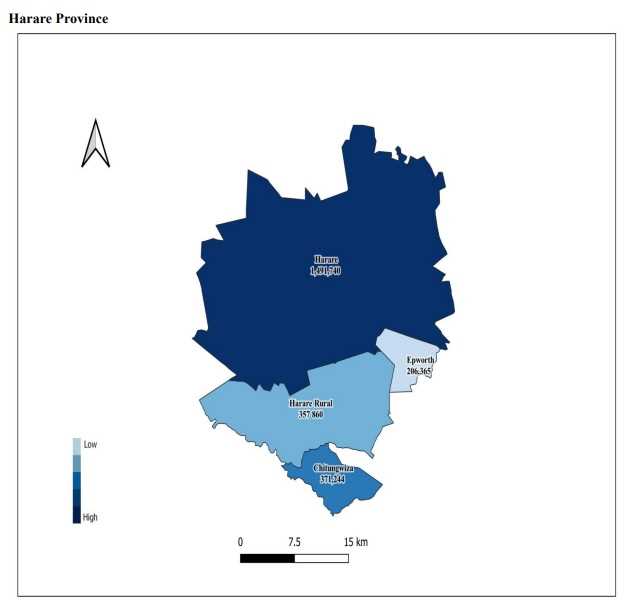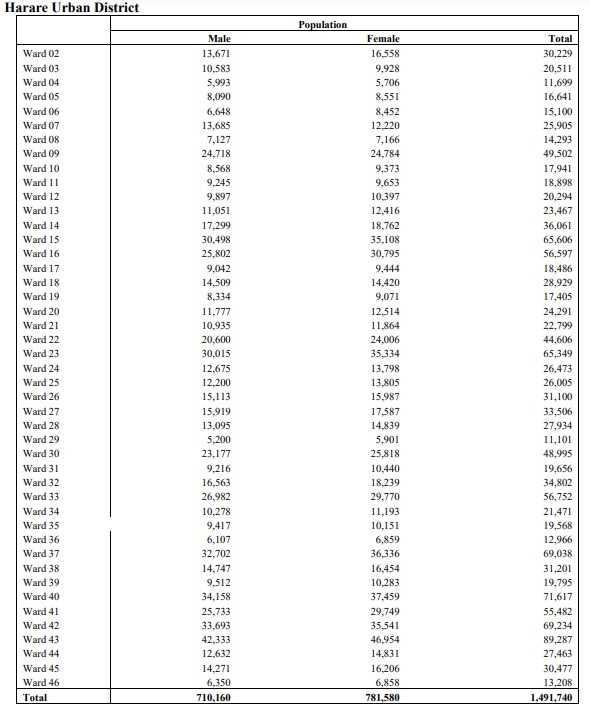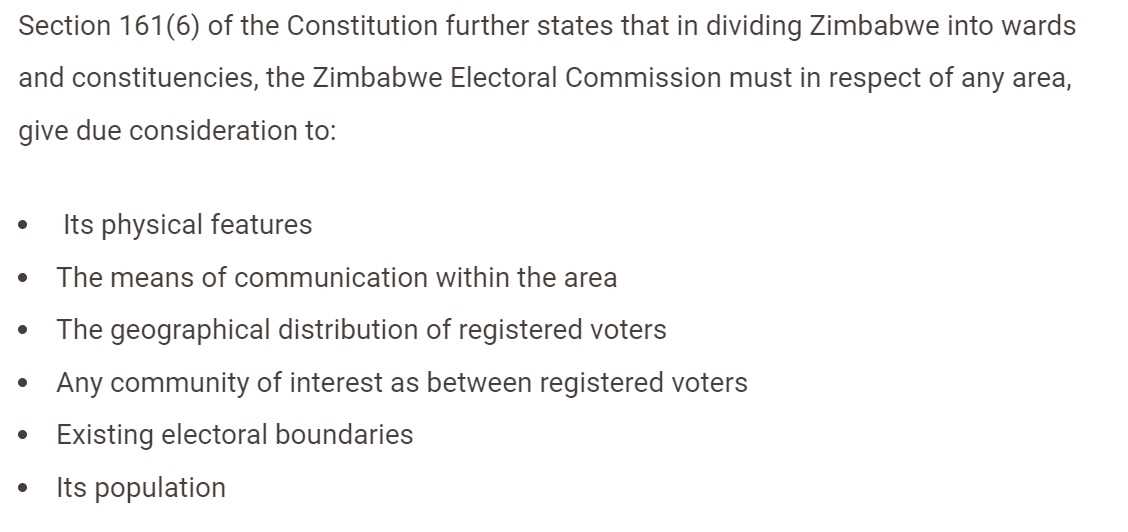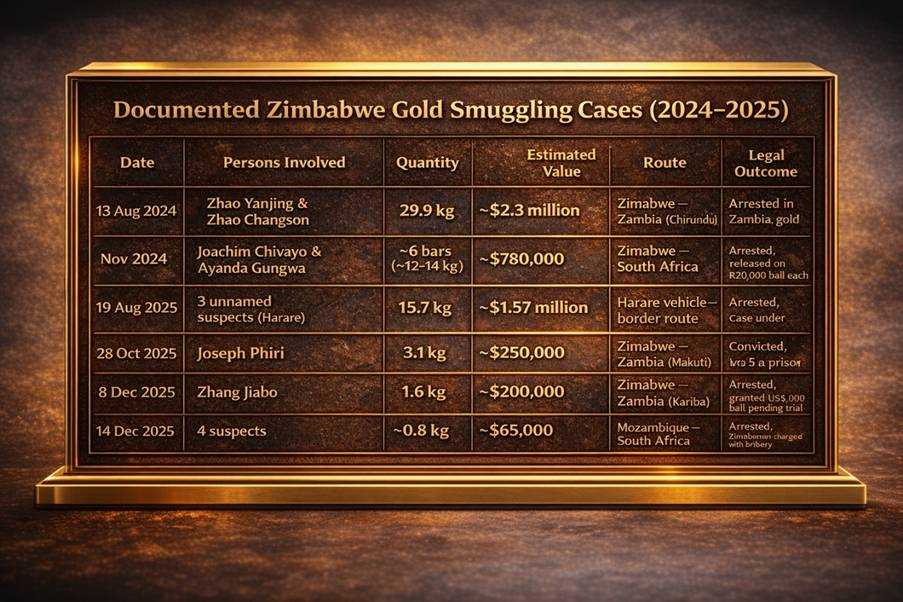
Takunda Mandura
Harare mayor Councilor Jacob Mafume says the Zimbabwe Electoral Commission should increase the number of wards in Harare, in the interest of citizens, especially those below the age of 18 in delimitation.
“ZEC is using, solely, the numbers on the voters roll, it forgets that a ward is made up of people, who are not on the voter roll and those who are on the voter rolls. Some of them are not only voters, simply because they are too young to be there and talking about our demographics, it's a huge figure,” said Clr Mafume.
ZEC has announced that it expects to conclude the delimitation exercise by December this year.
In terms of Section 161(2) delimitation must be completed six months before the conduct of any general election for it to be applicable to that election. This means that if the delimitation is not concluded by December 31, 2022, it will not be valid for the 2023 elections. Constitutionally, Zimbabwe’s general elections must fall in July 27 and August 26 next year.
ZEC will be compelled by law, to revert to boundaries of the 2007/2008 delimitation exercise.
ZEC announced that voter registration for the purposes of delimitation was closed on May 30, 2022.
Clr Mafume says that ideally Harare should have nine more wards, above the current 46, as a way of improving service delivery.
Related Stories
“We had done a costing and decided that let's increase them (wards) to 55 so to reduce the burden on the councilor and also, increase the chances of people being represented,” said Clr Mafume.

The 2022 Census put Harare population density at 2783 people per square meter. The 46 wards containing about 1.5 million people have varying densities. Ward 4 has just above 10 000 while Ward 43 has around 90 000 people.
“In terms of the law, we are allowed as a council to give recommendations to the delimitation authority based on the various factors,” said Clr Mafume.
The mayor says the council is using census results to understand the responsibility of each councilor, rather than the number of registered voters. He said that minors who are not yet eligible to vote are invisible in delimitation yet elected officials must serve these demographics.
“Percentage of the population of any given area that will be below 18 and these are the people who you provide services for after you have been elected. So, you cannot, just say, I am using the voter registration numbers. If you have 19 000 registered people in a ward, imagine the unregistered numbers in that constituency, the young in that constituency,” said Clr Mafume.
Election Resource Center executive director Babra Ontibile Bhebe said ZEC should consider voter growth potential in delimitation, but voter registration is the primary factor.
“The delimitation exercise is a process that should distribute voters equitably across constituencies and wards. While the population data may show the potential for growth of the number of voters in the area, ZEC ought to take this into consideration when dividing boundaries. However, primary data is the number of registered voters, which is a legal prerequisite,” she said.

The delimitation process is being carried out in terms of sections 160 and 161 of the Constitution and section 37A of the Electoral Act.




















Leave Comments